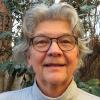Disability Studies and Mad Studies
Please set your timezone at https://www.chstm.org/user
Respectful Behavior Policy
Participants at Consortium activities will treat each other with respect and consideration to create a collegial, inclusive, and professional environment that is free from any form of discrimination, harassment, or retaliation.
Participants will avoid any inappropriate actions or statements based on individual characteristics such as age, race, religion, ethnicity, sexual orientation, gender identity, gender expression, marital status, nationality, political affiliation, ability status, educational background, or any other characteristic protected by law. Disruptive or harassing behavior of any kind will not be tolerated. Harassment includes but is not limited to inappropriate or intimidating behavior and language, unwelcome jokes or comments, unwanted touching or attention, offensive images, photography without permission, and stalking.
Participants may send reports or concerns about violations of this policy to conduct@chstm.org.
Upcoming Meetings
There are no currently scheduled upcoming events.
Past Meetings
-
February 8, 2022
Title: QueerCrip History and the 1960s Spectacle of White Appalachian Poverty Tours, Ryan Lee Cartwright
Abstract: This chapter from Peculiar Places: A QueerCrip History of White Rural Nonconformity (Chicago, 2021) examines how disability, sexuality, and gender intertwined in concerns about white Appalachian poverty in the 1960s. When poverty was “rediscovered” in the 1960s, racialized political concerns sent “poverty tourists”—politicians, journalists, social workers, volunteers, and college students—flocking to predominately white communities in West Virginia, eastern Kentucky, and other parts of the central and southern Appalachian Mountains. Michael Harrington and other 1960s poverty warriors attributed the social problems of white rural America to a muted form of mental and economic depression, saying that poor people were “maimed in body and spirit.” Even so, white men with temporary physical disabilities were the poster child for War on Poverty publicity, despite the fact that disability rarely healed according to curative time and most War on Poverty program specifically excluded people with disabilities. After offering a queercrip analysis of white Appalachian culture-of-poverty theory, I turn my focus to the mundane, material conditions of two specific poverty tours. In the first, I examine a controversial presidential visit to a poor white family who became fodder for gossip when the expected rehabilitation narrative was disrupted by the complexities of being poor and disabled. In the second, through a social worker’s account of the anxiety that poor white West Virginia men faced in navigating poverty bureaucracy, I consider how mental disabilities such as depression combined with labyrinthine bureaucracies to make poor people feel estranged. (Content note: discussion of familial CSA on p. 120)
BIO: Ryan Lee Cartwright is an assistant professor of American Studies at the University of California, Davis. Dr. Cartwright’s research focuses on disability, gender, and sexuality on the social and spatial margins. His first book, Peculiar Places: A Queer Crip History of White Rural Nonconformity (University of Chicago Press, 2021), maps racialized queer and disability histories of white social nonconformity across the rural US, from the 1910s to the 1990s. Cartwright’s second book examines how chronic illness came to be understood as a gendered, racialized “social burden” in the early-to-mid twentieth century US. His work has been funded by the ACLS, NEH, Smithsonian Institution, American Philosophical Society, and Hellman Family Foundation, among others. Prior to his appointment at the University of California, Davis, Cartwright was associate editor of MNopedia, a digital encyclopedia of Minnesota created by the Minnesota Historical Society.
-
January 11, 2022
Title: Picturing the Institution of Social Death: Visual Rhetorics of Postwar Asylum Exposé Photography
Abstract: This paper examines how photography shaped the American public’s perception of psychiatric hospitals during the immediate post-WWII period. I will analyze photographs that appeared in popular exposé articles of that period and that used photography as a visual aid for disclosing the poor conditions of state hospitals, intending to promote reform efforts focused on turning antiquated asylums into modern hospitals. Existing scholarship has mentioned how these photographs had a significant influence on shaping the public’s view of asylum conditions. Through a close examination of these photographs, I will argue that they often contained unintentional messages which stigmatized disabled people.
Bio: Shuko Tamao is currently a postdoctoral fellow at the National Museum of American History. She was also a postdoctoral research fellow during the 2020-2021 year at the University at Buffalo Center for Disability Studies. Her research areas are in 20th century American history and disability, with a focus on first-person experiences of institutionalization and memories associated with them. She is currently working on a manuscript project titled “Resisting Anonymity through Remembrance: A Narrative Examination of Postwar State Hospital Experiences” which uses material objects, oral testimony, visual culture, and other non-textual sources to recreate first-person narratives. With a background in public history, she is also co-writing an essay with Aaron Rubinstein about a range of issues specific to disability-related archival collections that prevent the voices of disabled people from being truly accessible to the public. This essay will be published in the collection “Cripping the Archive: Disability, History, and Power,” edited by Jenifer Barclay and Stefanie Hunt-Kennedy.
-
December 14, 2021
Chapter Title: Developmental Disorder, Racial Dissolution: Racial Typologies of Developmental Normalcy in Early Child Medicine, 1830 - 1870.
Chapter Description: This chapter argues that early texts on the physiology and pathologies of infancy and childhood reflected anatomical, physiological, and medical preoccupations with child disease and development as typological phenomena that were not generalizable across races. Instead, child development referred to a non-statistical “normal” that did not claim universality, but one that cohered within species or races. The first section analyzes medical treatises, with an emphasis on the developmental events most frequently associated with racial differentiation: cranial suture closure and puberty. The second section examines a wider range of medical, physiological, and ethnological texts to delineate how variable rates of development and the degree of synchronicity between competing developmental drives (i.e. physical and intellectual) generated racial hierarchies and threatened racial degeneration. More specifically, this section interrogates how “ethnic” classifications of idiocy and medical alarmism about precocious puberty and “puberty-as-crisis,” pathologized developmental timing and patterns in white children that were commonly accepted as typical in Black children. I argue that developmental norms actually constituted racial types, thus reframing developmental disorder as a threat to racial order. Finally, the concluding section contemplates how ecologies and epistemologies of anti/Blackness mutually reinforced one another in the antebellum U.S.
Kelsey Henry is a PhD Candidate in American Studies at Yale University, where she also received an MA in the History of Science and Medicine. Her work follows the legacies of nineteenth-century scientific metrics of human development and racial difference, metrics forged in the crucible of racial slavery, in histories of twentieth-century developmental science and biomedicine. She historicizes the production of developmental technologies and norms that are often perceived as race-neutral, like pediatric growth charts and developmental screening tests, interrogating the racial premises and parameters of developmental knowledge production and its material effects on Black life. Kelsey is a CHSTM Research Fellow for 2021-2022. Her work is supported by the Andrew W. Mellon Foundation and Yale’s Intersectional, Queer, and Trans Materialisms Initiative, and she has previously received support from the Dean’s Emerging Scholars Fellowship and the Ford Foundation Predoctoral Fellowship. She is involved in disability studies programming and disability justice initiatives at Yale and beyond, as a co-organizer of Yale’s Disability Studies Working Group, the Assistant Editor of Disability Studies Quarterly, and a co-host of the Disability History Association Podcast.
-
November 9, 2021
In The Distance Cure: A History of Teletherapy, Hannah Zeavin argues that, far from being a recent concern driven by the COVID-19 pandemic, teletherapy is as old as psychoanalysis itself. Starting with Freud's treatments by mail, psychotherapy has operated through multiple communication technologies and media. These have included advice columns, radio broadcasts, crisis hotlines, video, personal computers, and mobile phones; the therapists (broadly defined) can be professional or untrained, strangers or chatbots. In The Distance Cure, Zeavin proposes a reconfiguration of the traditional therapeutic dyad of therapist and patient as a triad: therapist, patient, and communication technology.
In "The Far Voice," Zeavin discusses the rise of the suicide crisis hotline (originated by Protestant clergy) in England and the United States in the 1950s and 1960s and investigates how this service first became thinkable, and then widely adopted and used. She redescribes the hotline as psycho-religious in origin and intent, rather than as the secular service it has usually been assumed to be. She argues that these services, in their use of the peer-to-peer modality, radically upset former regimes of pastoral care and counseling, as well as those of psychodynamic therapy. Hotlines generate a new, hyper-transient frame for the helping encounter, removing nearly all the traditional aspects of the therapeutic setting except for speech and listening. At the same time, some hotlines devalue the need for expertise and rescind the fee associated with that expertise to protect callers; they use anonymous interactions to shield users from the careral imperative. They challenge every clinical concept associated with the structure and dynamic of the analytic encounter. It is contingent, it is not in person, and requires (or permits) a distanced intimacy with no guarantee of repeating; and it makes use of the phone—an appliance paradoxically thought of as capable of bringing people together and as responsible for their greater alienation.
Hannah Zeavin is a Lecturer in the Departments of English and History at the University of California, Berkeley. Additionally, she is a visiting fellow at the Columbia University Center for the Study of Social Difference. Zeavin’s first book, The Distance Cure: A History of Teletherapy is now out from MIT Press, with a Foreword by John Durham Peters. She is at work on her second book, Mother’s Little Helpers: Technology in the American Family (MIT Press, 2023).
-
October 12, 2021
Title: Jim Crow in the Asylum: Psychiatry and Disability in the American South
Abstract:
In the United States plantation system, psychiatric and medical discourses were central to the creation of beliefs about the alleged inferiority of the enslaved person in both body and mind. Physicians invented mental illnesses to pathologize normal reactions or resistance to the brutality of slavery. These ideas did not disappear at the end of the Civil War but continued to permeate the emerging profession of psychiatry into the twentieth century, creating an epidemic of trauma through the mistreatment of disability and mental illness. In this project I draw on extensive archival sources to show the ways that Southern psychiatric hospitals in the mid twentieth century had become home to many thousands of Black patients with mental and physical disabilities, where treatment and care was custodial at best, violent and abusive at worst. From the process of admission, to misdiagnosis and lack of care, psychiatric hospitals in the Jim Crow South were no place of asylum for Black patients. They functioned as symbolic and actual spaces of institutional terror, approached by Black communities with caution. Yet they were also the scene of important Civil Rights activism in the 1960s which revealed the ways that psychiatry functioned as a tool of white supremacy. This activism led to the end of segregation, but could not fix the racism that underpins the provision of mental health and disability care today.
Bio:
Kylie Smith is Associate Professor and the 2021-2022 President’s Humanities Fellow at the Fox Center for Humanistic Inquiry at Emory University. Kylie teaches the history of race and US health care in both the School of Nursing and the Department of History at Emory. Her previous book “Talking Therapy: Knowledge and Power in American Psychiatric Nursing” was published by Rutgers University Press in 2020 and was awarded Book of the Year from both the American Journal of Nursing and the American Association for the History of Nursing. Her new book project called “Jim Crow in the Asylum: Psychiatry and Civil Rights in the American South” is supported by a grant from the National Library of Medicine.
-
September 14, 2021
Jenifer L. Barclay, “Family Matters: The Social Relations of Disability in Enslaved Families and Communities.”
The meeting will be a discussion of a chapter entitled “Reimagined Communities: Disability and the Making of Slave Families, Communities, and Culture” from Barclay's first book, The Mark of Slavery: Disability, Race, and Gender in Antebellum America (University of Illinois Press, 2021). The chapter examines the overlooked and unacknowledged roles of enslaved people with disabilities in contributing to the social cohesion of their vulnerable families and communities. Historians of slavery have noted that factors like age and gender shaped the daily lives of enslaved people, but ignored the social relations of disability in these spaces. Because they were devalued by slaveholders, enslaved people with disabilities were less likely to be sold and more likely to contribute important family and community-based labor. Yet ableism also existed within slave communities that sometimes left them marginalized and excluded.
Barclay is an Assistant Professor in the Department of History at the University at Buffalo. Her work has been supported by fellowships at the University of Virginia’s Carter G. Woodson Institute and Case Western Reserve University. Barclay is an associate editor for Review of Disability Studies and her first book, The Mark of Slavery: Disability, Race, and Gender in Antebellum America, appears in the University of Illinois Press’s “Disability Histories” series. With Stefanie Hunt-Kennedy she is editing a collection, 'Cripping the Archive: Disability, History, and Power', and is working on her second project, 'Between Two Worlds: Disability and Segregation in Southern Education from Emancipation to Integration'.
-
June 8, 2021
Kateřina Kolářová, "Rehabilitative Post-Socialism: Disability, Race, Gender, and Sexuality and the Limits of National Belonging" (forthcoming with University of Michigan Press).
The meeting will be a discussion of a chapter entitled “The Inadaptable (Non-)Citizen: The Racialised Logic of the Provisionally Permanent Abandonment."
Kolářová teaches at the Department of Sociology in the Gender Studies program, Charles University, Prague. Her work engages intersections of disability, crip, queer and race theories. Most recently, her manuscript Rehabilitative Postsocialism: Disability, Race, Gender and Sexuality and the Limits of National Belonging won the 2019 Tobin Siebers Prize for Disability Studies in Humanities (forthcoming with Michigan University Press). Together with Martina Winkler she co-edited Re/Imaginations of Disability in State Socialism: Visions, Promises, Frustrations (forthcoming with Campus Verlag in 2021).
Please join us. All are welcome. We will provide CART. Please contact Mike Rembis if you have any questions or concerns, or you need further accommodation.
-
May 11, 2021
Susan Burch, Committed: Remembering Native Kinship in and Beyond Institutions. (Chapel Hill: University of North Carolina Press, 2021).
Burch is a professor of American Studies at Middlebury College. Her research and teaching interests focus on deaf, disability, race, ethnicity, indigeneity, and gender and sexuality in late nineteenth- and twentieth-century U.S. history. Material culture, oral history, and inclusive design play an important role in her courses.
Please join us. All are welcome. We will provide CART. Please contact Mike Rembis if you have any questions or concerns, or you need further accommodation.
Please use the following URL to access the open access book: https://www.jstor.org/stable/10.5149/9781469663364_burch
-
April 13, 2021
Jaipreet Virdi, "Weaving History & Memoir: Writing Hearing Happiness."
Virdi is the author of, Hearing Happiness: Deafness Cures in History. (Chicago: The University of Chicago Press, 2020).
Jaipreet Virdi is a historian of medicine, technology, and disability. Her research and teaching interests include the history of medicine, the history of science, disability history, disability technologies, and material/visual culture studies. She received her Ph.D. from the Institute for the History and Philosophy of Science and Technology at the University of Toronto (2014).
Please join us. All are welcome. We will provide CART. Please contact Mike Rembis if you have any questions or concerns, or you need further accommodation.
-
February 9, 2021
Bruce J. Dierenfield and David A. Gerber, Disability Rights and Religious Liberty in Education: The Story behind Zobrest v. Catalina Foothills School District (University of Illinois Press, 2020).
Bruce J. Dierenfield is a professor of history and director of the All-College Honors Program at Canisius College. His five previous books include the prizewinning The Battle over School Prayer: How Engel v. Vitale Changed America. David A. Gerber is a University at Buffalo Distinguished Professor of History Emeritus and director emeritus of the University at Buffalo Center for Disability Studies. He is the author of Authors of Their Lives: The Personal Correspondence of British Immigrants to North America in the Nineteenth Century and editor of Disabled Veterans in History.
Please join us for our first meeting. All are welcome. We will provide CART. Please contact Mike Rembis if you have any questions or concerns, or you need further accommodation.
- « first
- ‹ previous
- 1
- 2
- 3
Group Conveners
-

Jenifer Barclay
Jenifer Barclay is an Associate Professor in the Department of History at the University at Buffalo, Associate Director of the university’s Center for Disability Studies, and Associate Editor for the Review of Disability Studies: An International Journal. She specializes in 19th century U.S. history, the history of slavery, the history of disability, race and global health.
-

Katherine Ott
Katherine Ott, Ph.D., is a curator in the Division of Medicine and Science at the Smithsonian's National Museum of American History. She is the author or co-editor of three books and has curated exhibitions and published on such topics as the history of disability, medicine, polio, HIV and AIDS, skin, LGBTQ+, and scrapbooks. She received the 2016 Society for Disability Studies Senior Scholar Award, is an OAH Distinguished Lecturer and teaches a graduate course in American Studies at the George Washington University. Ott tweets @amhistcurator about her work.
-

Natalia Pamula
Pamula is Assistant Professor of Cultural Studies and Disability Studies at the University of Warsaw, Poland. She specializes in Polish literature, American literature, and gender.
-

Mike Rembis
Mike Rembis is an Associate Professor in the Department of History at the University at Buffalo and the Director of the university’s Center for Disability Studies. He specializes in 19th and 20th century U.S. history, the history of psychiatry, the history of institutions, the history of eugenics, the history of disability, and mad people's history.